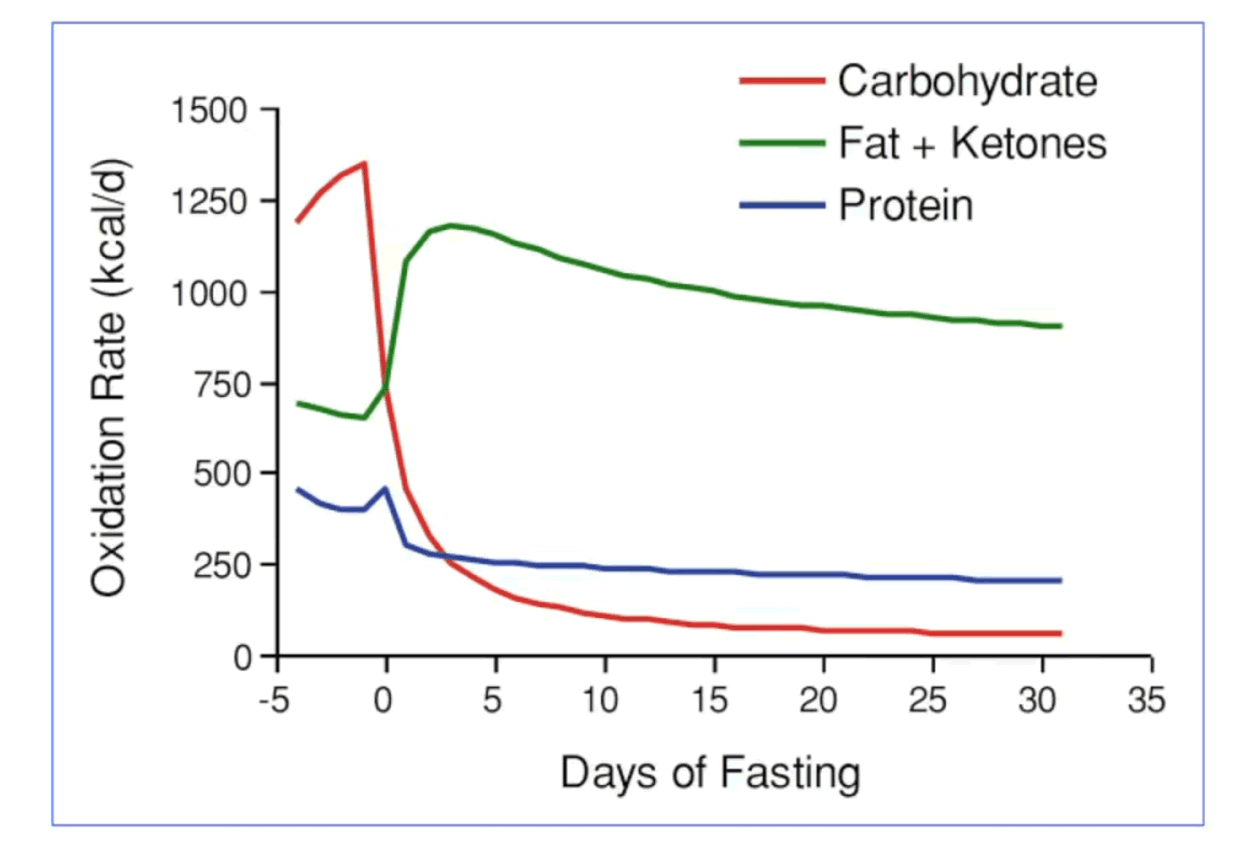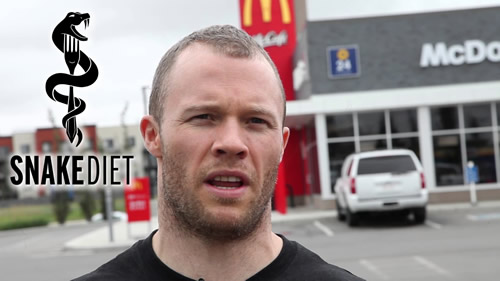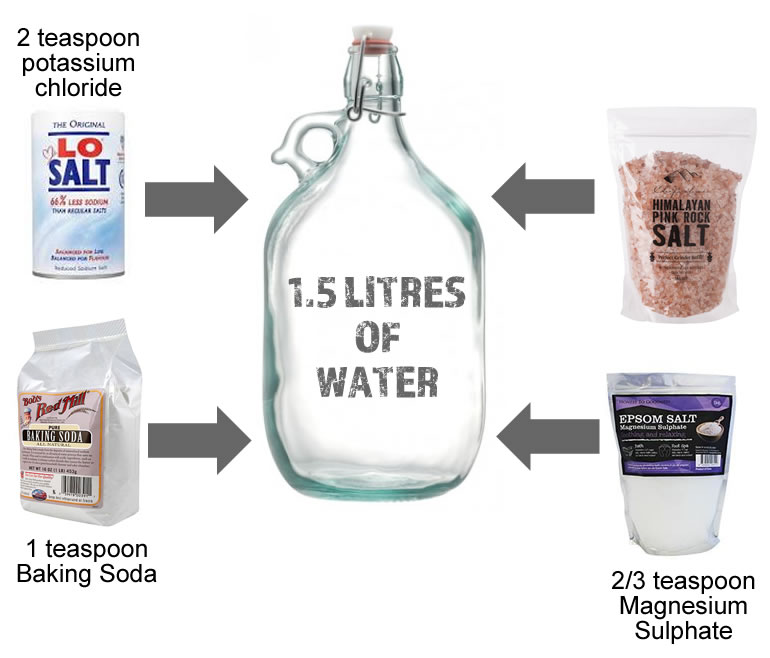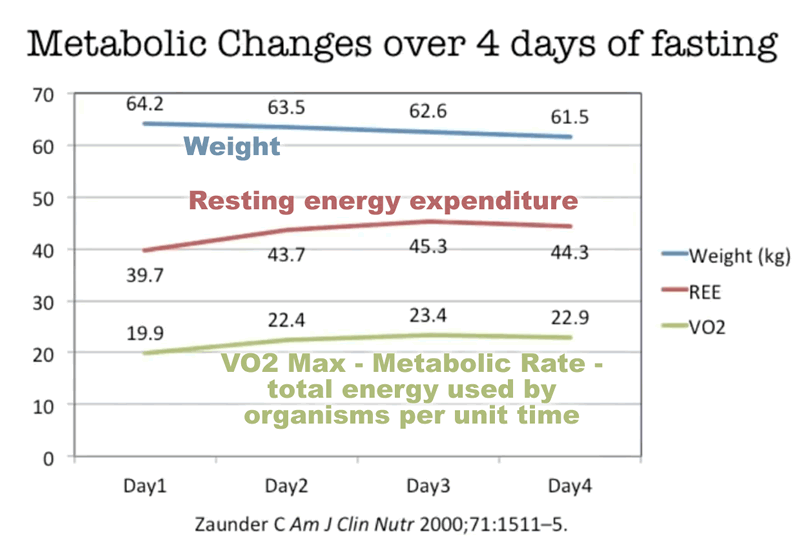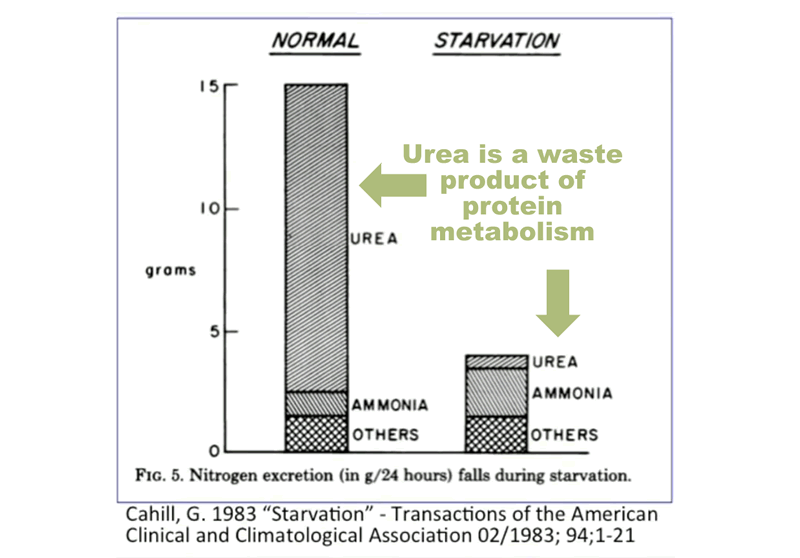Electrolyte fasting
Fasting is the #1 weight loss tool, nothing comes close. Fasting has amazing health benefits, it reverses metabolic diseases and cleanses and detoxifies your body. The human body did not evolve to eat food all day long. We evolved as hunter gatherers that would eat nutrient dense foods and then go for long periods without food and even water. People who fast go into ketosis, where fats are broken down. People who eat all day trigger constant insulin responses making fat burning impossible, even if they are in a calorific deficit.
Nature designed us to face periods without food. In these periods we get stronger, more mentally alert, get a jacked up immune system and boost our hormones. This happens because we need to be in top form to hunt and get the next meal. We don't burn muscle because protein metabolism is hugely downgraded. We simply burn the fat stored around our bodies for energy. Skip to the electrolyte recipe.
Conventional diets are based upon the "eat less - move more" model. These diets restrict calories and encourages you to eat throughout the day, which of course constantly spikes insulin. Calorie restricting diets will crash your basal metabolic rate (BMR is the energy you need to function) which means that after the diet finishes, you will pile on the weight again.
If you suffer from low energy anxiety, depression, insomnia, constipation, high blood pressure, heart disease, kidney stones, hyperthyroidism, arthritis, obesity, headaches, mental issues, constipation, numbness, muscle spasms, or fatigue you may be deficient in electrolytes. Not only does the lack of electrolytes in our diet affect many health conditions, but several medications are causing electrolyte deficiency. Examples include diuretics, laxatives, cortisone, aspirin, cardiac drugs and steroids.
The biggest criticism of fasting is that it makes people "starve" and puts the body into starvation mode, slashing metabolism. But the opposite happens because your body wants to put you in the most optimal state to get food.

In 1965 Angus Barbieri decided to try fasting, days passed and he started to shed weight. So he kept going. He ate no food for 392 days and his body simply used his ample fat supply as energy. He drank tea, coffee and took vitamins. At the end of the fast he was medically well and he kept the weight off.
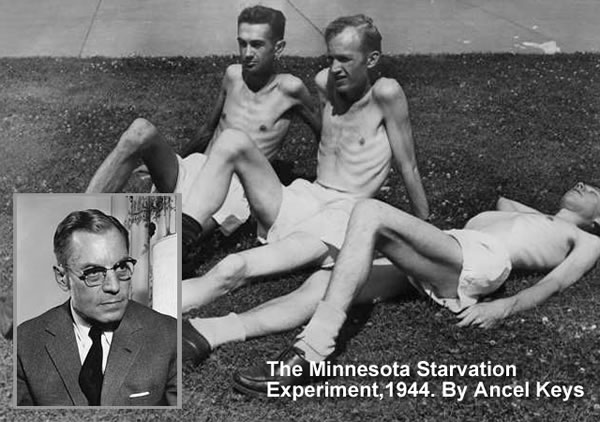
In 1944, a starvation study was carried out on 36 men for 13 months. They were fed 3200 calories per day for the first 3 months. This was then cut in half to 1600 calories per day, the results were a disaster. The men felt tired, irritable, bored and cold as their resting metabolic rate started to crash (the body responds to a colorific deficit by slowing things down). Sexual desire also evaporated. They craved food constantly and even resorted to stealing.
Which of the two examples above demonstrates starvation? It's clear that Angus wasn't starving at all. It was the 36 men on a low calorie diet that starved. Low calorie diets are a disaster and you pile the weight back on again. Ancel Keys also created the flawed 7 countries study in 1958 which started the "War on fatty foods", which in turn blamed cholesterol for heart disease.
The benefits of long fasts:
- Reduces body fat (you burn fat for energy and produce ketones for fuel). Conventional diets don't work.
- Prevents or reverses chronic diseases such as diabetes, high blood pressure, heart disease, fatty liver and mental disorders.
- Boosts the immune system.
- Boosts hormonal health.
- Improves insulin sensitivity.
- Detoxifies the blood and organs.
- Promotes autophagy and apoptisis. Autophagy is the ordered digestion of cellular components. It’s the way a cell can deal with unused or poorly formed components.
- Skin health improves.
- You will look younger.
- Aids better digestion.
- Allows you to live a normal life and eat a normal nutrient rich diet, without counting calories.
- You can come off medications (Doctors are the distribution arm of the worlds biggest business, the pharmaceutical industry).
- You will have a great excuse to not drink alcohol.
- Breaks bad food habits. If you are a smoker, why not give up the cigarettes?
- Improves metabolism.
- You don't have to go on crazy ketogenic diets that allow virtually no carbs and have people eating blocks of butter. The ketogenic diet is hard to stick to and there are some pretty awful food choices.
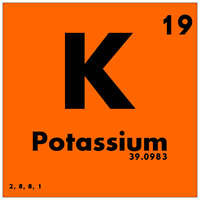
Potassium
One of potassium’s biggest roles in our bodies is to regulate the amount of sodium entering and exiting our cells (the potassium - sodium pump). Potassium also maintains the body’s pH levels. You need to consume a lot of potassium each day (4700mg or 4.7g). You cannot directly take potassium salts as a pill or powder supplement.
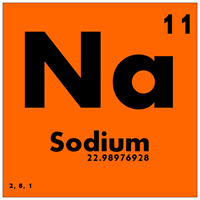
Sodium
Plenty of salt = no problems. 11g of salt a day seems to be the optimal amount (if you exercise lots or have low insulin due to a low carb diet, you will need more). The vast majority of us don’t need to eat a low salt diet. In fact, for most of us need more salt than less.

Magnesium
Magnesium is an important electrolyte used by virtually all of the bodily enzymes. It maintains fluid balance, gives energy to the cells (ATP), activates creatine, improves sleep quality, and increases the amount of free testosterone. You need around 400mg per day.
It is important to get the ratio of potassium and sodium and correct to achieve a healthy blood pressure level. Many people mistakenly assume that they have to consume low amounts of sodium in order to reduce blood pressure. You actually need plenty of salt and potassium. A 1997 study of people who took potassium rich foods reduced their blood pressure in just two weeks. UK and US guidelines say that adults should eat no more than 6g of salt a day (2.4g sodium), but our bodies are perfectly happy processing lots more salt than this. If you exercise and lot or live in a hot country (sweating) you need to have plenty of electrolytes.
Discover how much your life can improve by taking short breaks from food.
You can change the number of times you fast each month and also the duration of each fast. Everyone is different and several factors can come into play:
- How much extra weight are you carrying.
% body fat, body shape, water weight, muscle definition, belly:height ratio, obesity & BMI. If you are already quite lean and have a low BMI, long fasts and frequent fasts may not be the best thing. If you are obese and carry a lot of visceral belly fat then fast for as long as possible and drop the weight. - Underlying medical conditions.
Pre-diabetes, diabetes, fatty liver, gout, heart disease, arthritis, high blood-pressure, cancer. Medical conditions pose an interesting fasting dilemma because on the one hand you may choose to be cautious and on the other, hard fasting would possibly reverse the disease. Given the choice between taking horrendous damaging drugs for life or not eating for a while, the choice seems obvious. - Current micro-nutrient status.
Deficiencies in minerals, amino acids and vitamins are going to make fasting harder. It's best to start a fast with a "full-tank" of all the essentials. - Your age.
You should've reached full adult development to fast. Fat teenagers should perhaps look at changing diet, exercising and intermittent fasting. If you are over 18 the risks of fasting are minimal and the benefits huge.
Doing a fast is easy
You need to have some goals, make a plan and prepare your electrolytes and additives to your water (see below). Your body was designed to thrive when faced with a prolonged food shortage. You were not designed to eat all day! Most people have loads of storage fat and your body just needs to learn how to use it for energy. If your body is loaded with insulin, it cannot access the fat stores. Fasting is the best way to deplete your glycogen stores quickly.
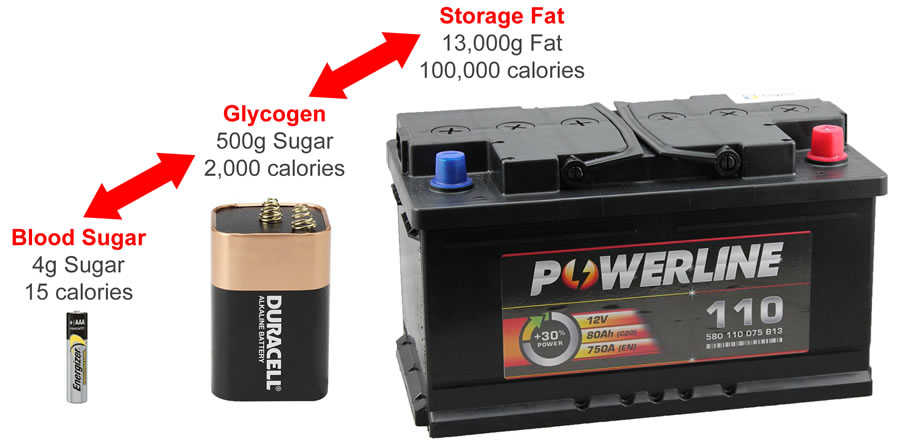
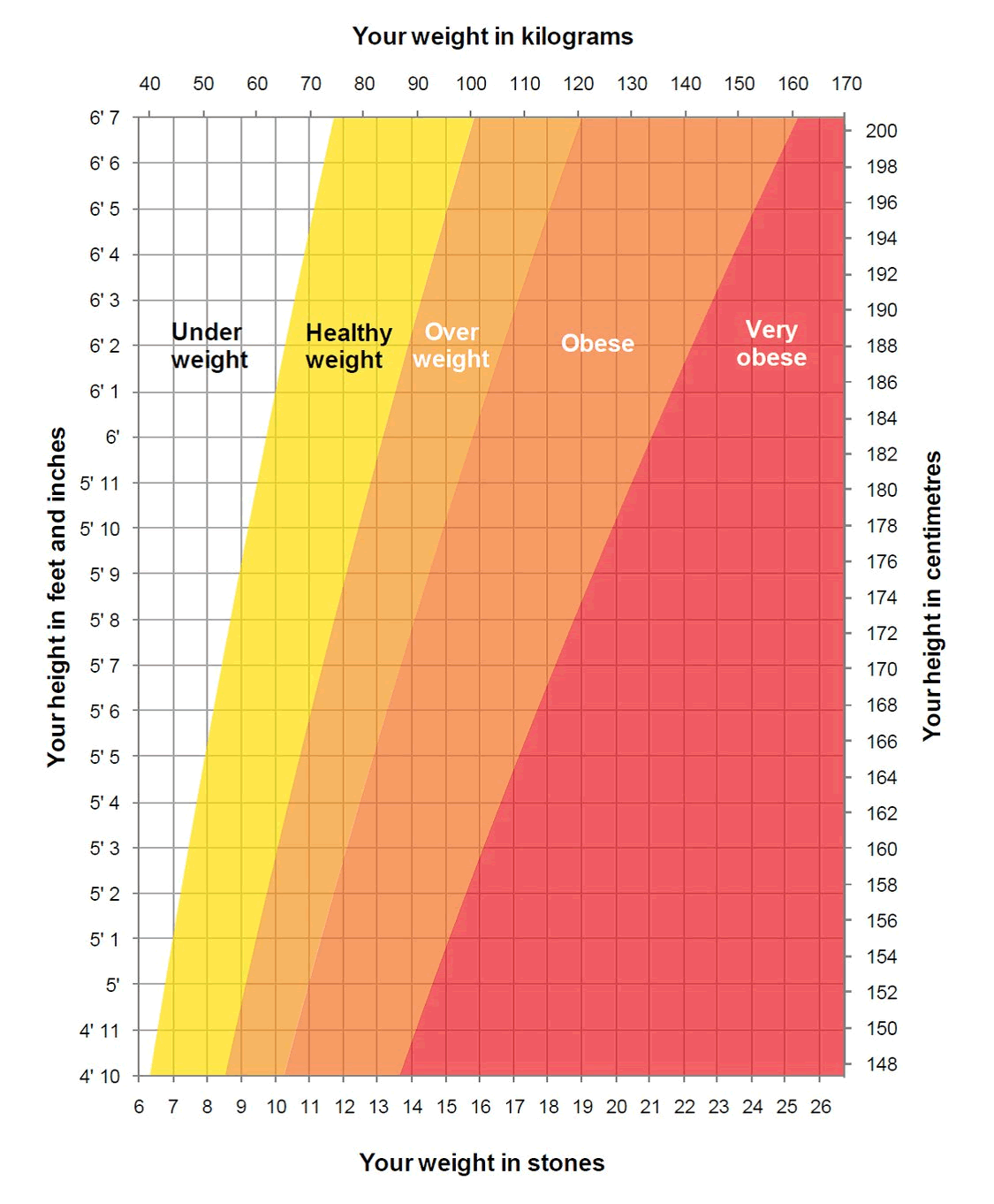
Weight
The typical western style 'processed food diet' has caused an epidemic of obesity and metabolic diseases. The pharmaceutical and food industry have lobbied and bribed every government in the world to create the conditions to keep this epidemic raging.
Let's take the example of diabetes. The NHS specifically recommends not skipping breakfast and eating small meals all day. It also recommends less fat and salt with an emphasis on meals based around foods with starchy carbs (bread, pasta, rice and potato). The NHS describes diabetes as "A lifelong condition that causes a person's blood sugar level to become too high" they go on to say that "if you have diabetes, your body is unable to break down glucose into energy" .....this is completely wrong. So, for diabetes:-
- Doctors will give you the wrong advice.
- Doctors will put you on a drug called metformin.
- You will need to measure blood glucose for life.
- You could eventually be given synthetic insulin
- Your condition will worsen (leading to weight gain, sight-loss, amputations and other metabolic diseases).
- You will have a terrible old age.
Dry fasting and wet fasting
Fasting for 24, 48 or 72 hours seems to have some incredible benefits. You can abstain from food and water, this is called dry fasting (this promotes greater autophagy). Or you can just drink water, this is called wet fasting.
- Dry fasting is mainly for people who want to fix big health issues. It should only be carried out after some extensive thought and research.
- Wet fasting with plain water will yield several benefits, but you will feel pretty awful due to diminishing micro-nutrients and dangerously low electrolytes. Doing very long fasts without proper electrolyte intake can be quite dangerous.
- Electrolyte fasting uses water with the addition of some key electrolytes. Potassium, sodium and magnesium. Fasts are quite easy to maintain.
Autophagy
Autophagy refers to an ordered and purposeful digestion of cellular components. It’s basically the way a cell can deal with unused or poorly folded proteins. This is a normal cellular process that is key in preventing diseases such as cancer, loss of brain function, heart disease, diabetes, liver disease and infections. Researchers believe that autophagy is a survival mechanism that has anti-aging benefits. The body cleverly uses waste produced inside cells to create new building materials that aid in repair and regeneration.
When cells have plentiful supply of oxygen, glucose, amino acids and other essentials, they switch off or turn down the rate of autophagy. So eating a diet of sugary processed foods throughout the day will put the brakes on autophagy. If cells sense a decrease in essential supplies (such as in a period of intermittent fasting) autophagy is boosted. It is thought that autophagy peaks after 12-16 hours without food.
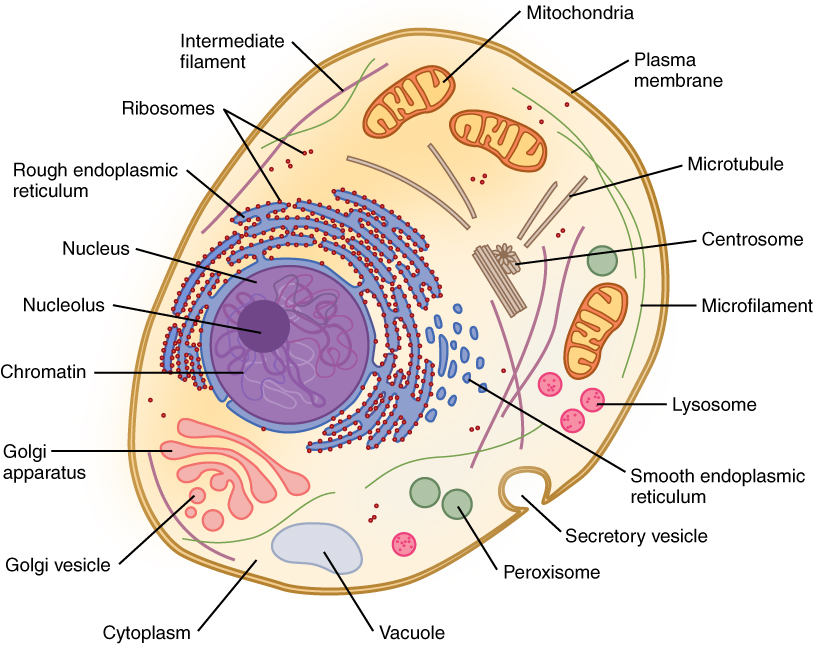
We first came across Cole Robinson in a Youtube video where he was eating huge McDonald's meals on a "One meal a day - OMAD" basis for 30 days. Cole believes that everyone would benefit from a fasting focused lifestyle. Cole's fasting and fitness lifestyle was able to handle the huge fast-food meal without any serious metabolic effects (he took DEXA scans and blood work). His facebook group is called Snake Diet Motivation and it has nearly 300,000 members; the transformations are incredible. People are beating diabetes and cancers. Most of the people starting the fasting focused lifestyle are also shedding loads of fat.
The snake diet revolves around fasting, but specifically not just water fasting He uses an electrolyte rich water, Cole calls "Snake juice". You will feel terrible over a long water fast that just uses plain water, your kidneys will excrete vital electrolytes. Snake juice makes fasting easy and it ensures you get a plentiful supply of the vital electrolytes.
- Potassium chloride (from a low-sodium salt).
- Sodium chloride (from Himalayan rock salt and the LoSalt).
- Sodium bicarbonate (baking soda).
- Magnesium sulphate (epsom salts).
The following can be mixed separately in a small glass of water:
- Borax (optional, as a source of boron).
- Apple cider vinegar (optional).
- Fresh lemon juice (optional).
- Cayenne pepper (optional).
*** DON'T USE ELECTROLYTE SACHETS as they contain sugars and have tiny amounts of potassium and magnesium, they are garbage ***
- If you use food grade pure potassium chloride instead of low salt, you will lose a bit of salt and gain potassium (use the toggle at the top to switch formula).
- Remember to ditch the magnesium sulphate if you take a multi-vitamin that gives a full 400mg.
- If you are hammering exercise, taking saunas or live in a hot country (not sat in the AC!) you will sweat way more and may need to drink more electrolyte solution. If you finish the 1.5 litres, drink some more and listen to your body.
- We've taken the potassium content down from the RDA because you will most likely be less active during fasting days compared to normal eating days. But for most people, this level would be greater than the standard diet content.
- The magnesium is very important, if you can get some magnesium glycinate (C4H8MgN2O4 ,so it's 14% magnesium by weight) then use that instead. The "Rolls-Royce" of magnesium salts is L-threonate, as it's exceptionally good at increasing brain magnesium levels.
Tips:-
- Many people cry because it tastes salty, it's salt water not sugar water! You can easily drop the sea salt to make it less salty.
- Drop in a Berocca vitamin C + Zinc tablet. They are orange flavour and make the electrolyte water taste quite good. You get 1000mg of vitamin C plus 15mg of zinc. A Berocca is 5 calories so it's not going to hurt.
One of the biggest advantages to fasting is cellular autophagy. However, adding more to the snake juice will diminish the autophagy and detox effects, especially if juices are added. Looking at the optional ingredients (to be mixed separately from the main snake juice) :
- The apple cider vinegar is recommended. It is good for blood sugar control, lowers LDL cholesterol and is great for gut health. Two tbsp is 6 calories so if you want to be a purist you can always avoid and take plenty before the fast starts.
- Lemon juice is recommended, but the acidity might damage your teeth if you sip it all day in your main snake juice. Take it all at once and rinse your mouth out with water. Again there are a few negligible calories.
- Borax is a must. But you have to be careful as it's a white powder just like the LoSalt and baking soda. Borax powder contains boron and it's an amazing element that will prevent and reverse osteoporosis and arthritis. The pharmaceutical industry sells $30 billion worth of toxic arthritis drugs per year (not including the pain killers that people take for joint pain). Big pharma have vilified borax and have either banned it or labelled it a poison (it's banned as a food additive with the exception of caviar!) A years supply of borax, giving a daily 30mg therapeutic dose of boron, costs $0.10 and has ZERO side effects. A years supply of the arthritis drug Plaquenil costs $1300. Enbrel injections would cost $62,000 per year. Here are the LD50 per kilo body weight (lethal dose to kill 50% rats):
- Borax: 2.66g/Kg
- Baking soda 4.2g/Kg
- Salt: 3g/Kg
- Tylenol: 2.4g/Kg
You would need a pile of borax powder to kill yourself. Our advice would be to make up a borax solution and label it for use.
- Cayenne pepper. Cole uses cayenne pepper for his snake juice. It's down to personal taste, so just try a little in a glass to see if you like it. Cayenne is great for the stomach so you might want to try it
Drink these in a small glass of water early in the day. Boron boosts brain activity, so taking it late at night will affect your sleep. Wash your mouth out with water to get rid of any acidity that might affect your teeth.
Snake juice extras
You can take a small glass of the main snake juice and squeeze half a lemon into it. Add 2 table spoons of apple cider vinegar. Add a pinch of cayenne pepper or as much as you are comfortable with. Add a tablespoon of the borax solution you have made earlier:
Making the borax solution.
This is a molecule of borax: Na2[B4O5(OH)4]·8H2O It has a boron content of 11.3% by weight.
- Put 1 teaspoon (5g) of borax into a litre of water. This will contain 0.56g or 560mg of boron.
- Clearly label the bottle and keep it somewhere safe.
- 1 tablespoon (15ml) of this dilute borax solution will have roughly 8mg of boron. 2-3 tablespoons of the diluted solution is a theraputic dose.
- You could add a tiny pinch of borax powder to each 1.5 litre bottle of snake juice. But the quantity would be a little random. A tiny pinch would roughly weigh 0.2g (yielding around 20mg of boron).
- Boron is a critical mineral. See more about borax here.
Micro-nutrient additions
It is important to not be deficient in micro-nutrients before you start a longer fast.
- Taking a small multi-vitamin each day is a good idea. Centrum only contains 80mg of magnesium, but some multi-vitamins have a full 400mg (so you can omit the magnesium sulphate from the mix if your chosen multi-vitamin is high in magnesium). The range of water soluble B vitamins and vitamin C are very important. Try and take a split dose of vitamin C each day, half in the morning and half later in the day. A berroca with zinc is a good vitamin C supplement. The average half life of vitamin C (ascorbic acid) in adults is about 10–20 days. When you are eating food normally, make sure that you are getting plenty of vitamin C rich foods such a guava, kiwi, berries, pineapple, papaya etc.
- Taking other capsules, such as fish oils is not recommended when fasting. You can load up on omega-3 from krill oil or fatty fish before you start the fast.
- You certainly shouldn't be taking bulkier supplements such as glycine, creatine or protein powders. You might not drop out of fat burning mode, but they will affect autophagy.
Fat breaks down to carbon dioxide and water
After your glycogen stores are depleted after 12-16 hours of fasting (more if you are sedentary) you will start to convert fat into fuel, this process is called lipolysis. Fatty acid metabolism consists of catabolic processes that generate energy and anabolic processes that create molecules such as triglycerides, phospholipids, hormones and ketone bodies. The free fatty acids created in fat breakdown ultimately produces ATP. Fatty acids yield the most ATP on an energy per gram basis, when they are completely oxidised to CO2 and water by beta oxidation and the citric acid cycle. So when you beak down fat you hydrate yourself by making water.
You might find it quite hard to drink 1.5 litres of snake juice as your body starts breaking down fat into water.
Is fasting safe?
Humans evolved to go without food, in fact we can go for weeks without eating. Eating constantly is a relatively modern thing and is not good for optimal health. If you start a fast with a good micro-nutrient profile and drink sufficient electrolytes throughout the fast, you will feel good. You even do hard exercise several days into a fast because your body is using your fat as fuel. Fasting triggers regeneration and detoxification, it also balances your hormones. You really need to give your body a break from insulin spikes.
If you can do a series of controlled fasts, it's easy to get your weight rapidly down and become lean. Once you are lean you can plan a maintenance diet of calorie dense whole foods.
A fasting focused lifestyle allows people to lose weight and keep it off. Conventional calorie restricting diets don't work because they allow you to eat all day, spiking insulin. People pile the weight back on. Exercise alone will not drop the pounds. You can visit the gym and do classes all week for very meager returns, especially after you hit 40. So many people pound away in the gym but eat 6 meals and snacks a day, thus achieving little or no weight loss.
Just start an electrolyte fast and review how you feel after 48 or 72 hours. Standing on the scales will give you all the motivation you need. Fasting should be the preferred option for people carrying lots of extra weight.
If you don't fast, what are the options if you are overweight or have metabolic diseases such as diabetes, high blood pressure and cancer? The conventional options are:
- Suffer in silence.
- Delegate your health to a doctor.
- Treat the symptoms, not the cause.
- Take drugs for life, often with severe side effects.
- Surgery such as organ removal and stomach stapling.
Nobody makes money if you are healthy. We live in a crazy world where a doctor is allowed to offer stomach stapling to a morbidly obese patient, but is not allowed to suggest fasting!
START FASTING → SEE THE BENEFITS → RE-EVALUATE
What is ketosis?
There is so much nonsense on the Internet regarding ketosis and ketones. The body is quite capable of burning fats without the need to produce ketones, fatty acids are broken down throughout the body. So let's take a step back. All fats in the body are glycerides (glyceride = glycerol + fatty acids). When a fat breaks down, a long chain of carbon with an acidic part at the end is produced which is called a fatty acid. Fatty acids are bound to the protein albumin when they are transported in the blood. Fatty acids are ultimately oxidized by β-oxidation into acetyl-CoA (Coenzyme A combines with the fatty acid to produce the activated version). Because one triglyceride molecule yields three fatty acid molecules with as much as 16 or more carbons in each one, fat molecules yield lots of energy. When glucose levels are low, triglycerides can be converted into acetyl CoA molecules and used to generate ATP through aerobic respiration. For complete combustion of fatty acids (to ATP plus carbon dioxide plus water) glucose is required to keep the citric acid cycle running. If glucose is not available, acetyl CoA is converted to molecules called ketone bodies. The fat-derived energy (ketone bodies) generated in the liver enter the blood stream and are used by other organs, such as the brain, heart, kidney cortex and skeletal muscle. Ketone bodies are particularly important for the brain which has no other substantial non-glucose-derived energy source. The two main ketone bodies are acetoacetate (AcAc), 3-hydroxybutyrate (3HB) and acetone. Ketone bodies are always present in the blood and their levels increase during fasting and prolonged exercise. After an over-night fast, ketone bodies supply 2–6% of the body's energy requirements, while they supply 30–40% of the energy needs after a 3-day fast. When they build up in the blood they spill over into the urine. The presence of elevated ketone bodies in the blood is termed ketosis and the presence of ketone bodies in the urine is called ketonuria. The body can also rid itself of acetone through the lungs which gives the breath a fruity smell. All fat within the body has a glycerol backbone within the molecules, your body can break down fats into glycerol which can be broken down further into glycogen and glucose. Even if your body is fasting for days, it is still able to produce glucose from fat. We can survive without eating carbs and just ingesting protein and fats. Your body can make as much glucose as it needs, just by guzzling fat, whether it be stored or ingested. Your brain and cognitive functions are quite capable of running with a zero carbohydrate intake.
Will I just lose water weight?
You will burn fat and lose some water weight. Water represents 60% of body weight in men and 50-55% in women. Body fat is only about 10% water and this explains why women have slightly less water weight because they tend to carry more fat than men. Water is distributed inside your body cells (intracellular) and outside the cells, such as blood plasma. The intracellular water is about two thirds of body water.
There are three primary causes of this type of water retention:
- Potassium/Sodium balance: Potassium plays a vital role in restoring this cellular fluid balance. Sodium sucks water into cells and potassium pumps it out. So a diet high in potassium will reduce your water weight and reduce your blood pressure.
- Elevated cortisol levels (stress).
- Not drinking enough water. If you body is experiencing less water intake it will switch to water retention.
Remember that when you fast using eletrolytes, you will consume plenty of water. The key difference is that you will also be getting plenty of potassium (probably way more than you usually get through diet). This will mean you will lose water weight and appear way less puffy.

Will I lose muscle mass?
Fasting is the most muscle sparing form of weight loss. Boxers and weight lifters have used fasting for centuries to cut fat before a competition. It's crazy to think that athletes would jeopardise their muscle mass to lose weight whilst fasting.
The worst form of weight loss is eating multiple meals a day at a calorific deficit, but this is what most diets demand. Going on a calorie controlled diet is very catabolic in terms of muscle mass because your fat reserves are inaccessible.
One way to ensure you don't lose muscle mass it to perform regular exercise such as lifting heavy weights and body weight exercises (push ups, dips, squats, lunges, plank variations, burpees). A simple resistance band offers a full body workout that forces your body to prioritise muscle retention and growth.
Your estimated energy stores (calories)
ATP & Creatine phosphate (in cells): 5 kcal
Blood glucose: 15 kcal
Liver glycogen: 400 kcal
Muscle glycogen: 1600 kcal
Blood free fatty acids: 10 kcal
Blood free triglycerides: 100 kcal
Muscle triglycerides: 2,500 kcal
Fat stores: 100,000+ kcal
Muscle protein: 30,000 kcal
Research into metabolism
Looking at the studies below, you can see the positive effect that fasting has on metabolic rate and resting energy expenditure. It's clear that fasting does not reduce your metabolism and send it into starvation mode. In the diagram showing urea production in a non-fasted and fasted state, it is clear that muscle breakdown is rapidly down-regulated during fasting. There is always going to be some muscle loss as proteins are recycled in a natural manner.
Energy consumed whilst long fasting
The graph shows a typical energy source diagram covering many days fasting. It is very clear that protein synthesis (muscle loss) is down regulated to maintenance and fat burning is the preferred source of energy.
- Carbohydrate energy sources drop rapidly as glycogen stores are depleted.
- Protein synthesis falls and tapers to a steady amount. Muscle mass and protein stores are huge and they are recycled on a healthy daily basis.
- Energy from fat breaks down to amino acids and goes into the energy cycles. Ketones produced by the liver increase rapidly when glucose diminishes.
